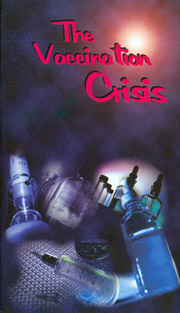WHAT IS THE SOLUTION?What is the answer? In this chapter, we have overviewed a massive problem, caused by production of dangerous biological weapons. What is the answer? Are there solutions, and what are they? Treatment, not vaccination. If rapid detection, diagnosis, and treatment methods are in place, people exposed to anthrax can be cured of the disease. That is part of the solution. Not vaccination, but immediate treatment of the sick! Vaccination cannot protect against multiple strains. In Sverdlovsk, Russia, when anthrax was accidentally released from a biowarfare facility in 1979; the spore cloud passed directly over a nearby ceramics factory shop, and only 10 out of 450 workers fell ill and died. This was a fatality rate of only 2% (Redmond Handy, “Analysis of DOD’s Anthrax Vaccine Immunization Program [AVIP],” report to Call for Amnesty Press Conference, Washington, D.C., February 12, 2001, p. 49). Later at the Los Alamos National Laboratory in New Mexico, autopsy studies were made of some of those 10 people. It revealed that they were infected by at least four different strains of anthrax. This means that no vaccine could have protected against such an attack! One scientist, Paul Jackson, concluded, “The purpose of such a mixture might have been to overwhelm the American vaccine” (Jackson, quoted in Nicholas Wade, “Tests with Anthrax Raise Fears that American Vaccine Can be Defeated,” New York Times National, March 26, 1998). Vaccination cannot protect against genetically altered strains. The Russians had developed a special combined strain which would defy any vaccine we could make against it. It is known that they have also made gene-altered strains that could defeat their own vaccine, not only ours; this is much more powerful. The experts agree. Testifying before Congress in the spring of 1998, Ken Alibek, the former deputy director of the Soviet biological warfare directorate (BioParat), said, “We need to stop deceiving people that vaccines are the most effective protection . . In the case of most military and all terrorist attacks with biological weapons, vaccines would be of little use” (Dr. Ken Alibek, statement to Joint Economic Committee of Congress, May 20, 1998). Our leaders have known this for a long time. In a test done at Fort Detrick in 1986, guinea pigs were immunized with our U.S. anthrax vaccine and then given several different anthrax strains. Half of them died. In a separate Fort Detrick study, over 50% of the guinea pigs died. Here is the fourfold defense that is needed. Instead of stockpiling dangerous vaccines as an effective military strategy, military planners should emphasize rapid detection, decontamination, and medical treatment after exposure in the event of a confirmed attack. In addition, ways should be developed to render the enemy’s biological weapons obsolete. Why weapon vaccines do not work. First, vaccination is useless as a protection against deadly multi-strain diseases. Second, the vaccines against those deadly diseases are themselves extremely dangerous to those taking them. The evidence is abundant and obvious. The problem is that, so far, the U.S. military and homeland defense agencies refuse to consider these facts. Lederberg speaks. Joshua Lederberg, Nobel Prize winner and biological weapons expert, summarized it in these words: “There is no technical solution to the problem of biological weapons. It needs an ethical, human, and moral solution if it’s going to happen at all. There is no other solution.”—Lederberg, quoted in Meryl Nass M.D., “Anthrax Vaccine and the Prevention of Biological Warfare,” p. 6. Polls of U.S. citizens. A 1999 poll of 7,800 Americans found that 83% disapproved of the anthrax vaccine. They said it should not be given and they did not want to receive it (USA Today, Weekend Poll, September 9, 1999). A poll of service personnel found that 77% were opposed to it (Army Times, March 1999). However, regarding the smallpox vaccine (which is also dangerous, but less so) a slight majority of Americans polled say, if it were offered, they would be willing to take it. |

